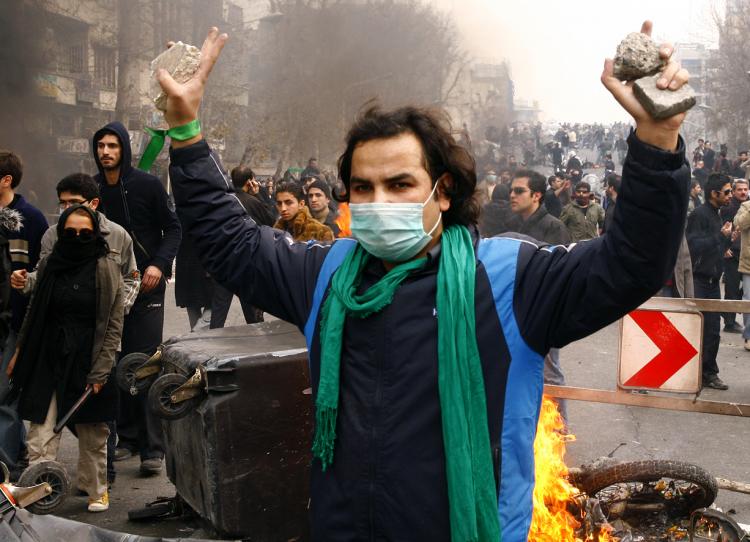An Iranian appeals court has upheld a death sentence handed down to a 20-year-old university student, say opposition groups.
Mohammad Amin Valian was found guilty of “moharebeh” (waging war against God) for throwing stones at security forces during the mass opposition protests in Tehran last Dec. 28.
The offense, which took place over the Shi'ite festival of Ashura, is punishable by death.
Iran has so far executed two people out of a total of 11 sentenced to death for taking part in opposition protests.
The executions of Mohammad Reza Ali Zamani and Arash Rahmani Pour on Jan. 28 has done much to quell further demonstrations.
Opposition groups accused President Mahmoud Ahmadinejad of massive election fraud following his apparent victory in the country’s national elections last June.
Supporters of reformist candidate Mir Hossein Mousavi brought the country to the brink of crisis with a series of mass rallies last year that saw thousands of demonstrators clash with security forces on the streets of the capital of Tehran.
Opposition Web sites Kaleme.com and Rahesabz.net claim that 80 protesters were killed by government militia in the violence, and hundreds more have been arrested.
In August, more than 100 opposition figures and supporters were put on a mass trial. Along with the 11 sentenced to death, more than 80 have been handed prison terms ranging from 6 months to 15 years.
Government sources have so far failed to verify the appeal verdict, which has been reported widely on opposition Web sites.
The Kaleme Web site said the evidence used to convict Valian was a photograph showing him throwing stones during the rally. “A death verdict on the basis of a photo has astonished and shocked both his family and relatives,” it said.
According to the report, Valian testified that he threw stones on three occasions but that they didn’t hit anybody.
The judge who issued the initial moharebeh sentence did so on the basis of a sermon by a senior cleric, Ayatollah Makarem Shirazi, who had reportedly said that “desecrators of Ashura” are “moharebeh,” or enemies of God.
The two opposition supporters executed in January were allegedly linked to monarchist groups plotting the overthrow of the Islamic Republic.
However, it is claimed that aside from being a member of the reformist Islamic Association at his university in the northern town of Damghan, Valian has no links with extremist groups.
Human rights advocate organization, the International Campaign for Human Rights in Iran, released a statement on Wednesday saying that the evidence against Valian “in no way justifies the charge of moharebeh or his death sentence.”
It is calling for the head of the judiciary to launch a review into Valian’s sentence and the judicial process behind the sentencing of the 11 others awaiting execution.
“The defendants have had no access to internationally recognized standards of justice and due process,” the organization said on its Web site. “They have been denied the right of access to their lawyers.
“In the cases of the two defendants already executed, Arash Rahmani and Mohammad Reza Ali Zamani, the men were executed in secret without their family or lawyers being notified,” said the Web site.






